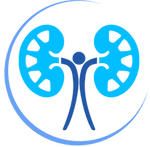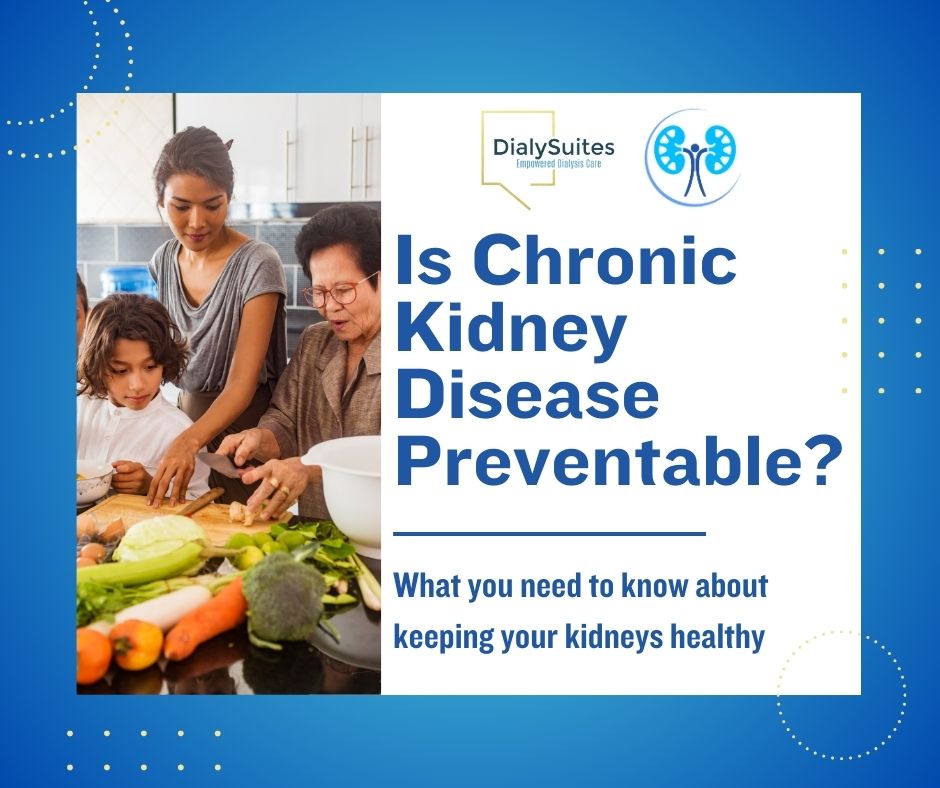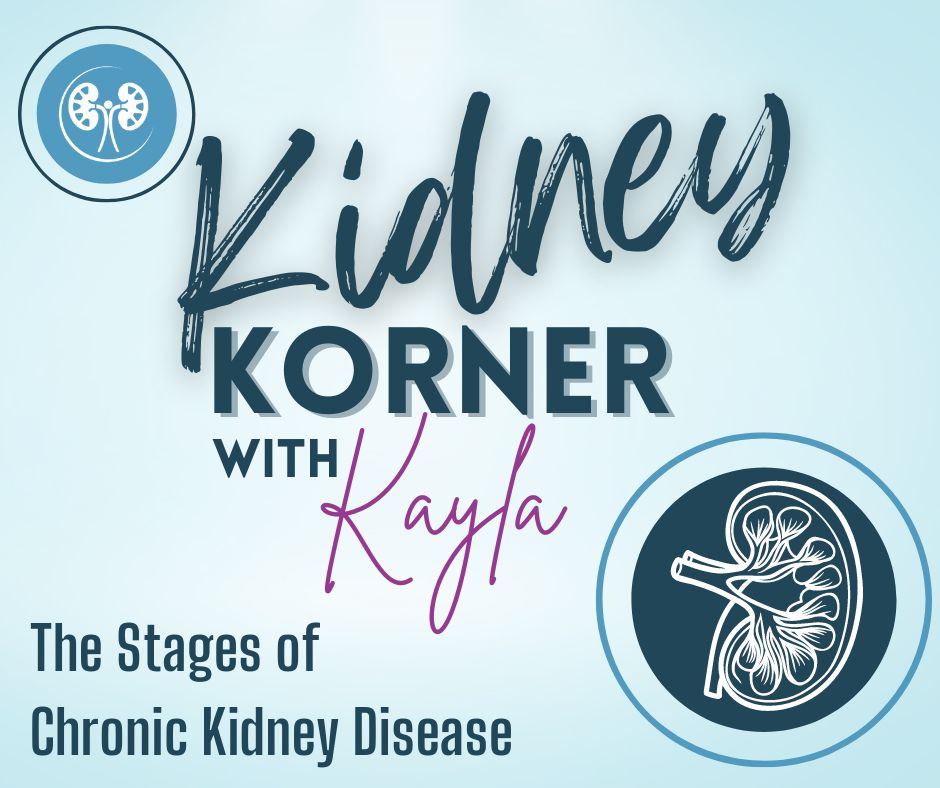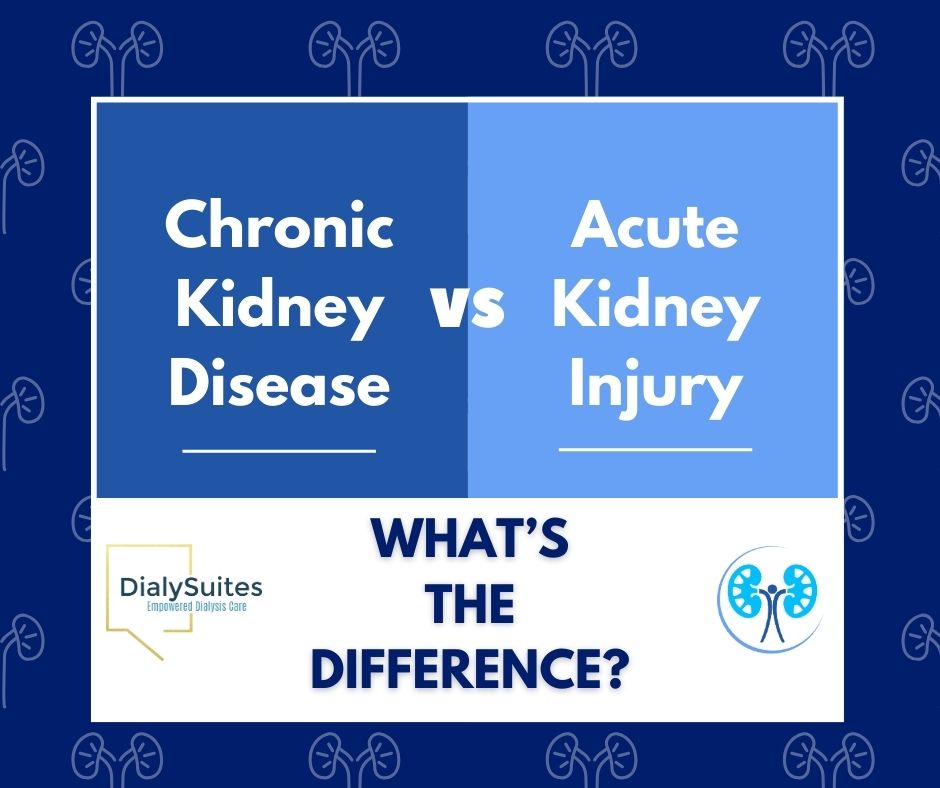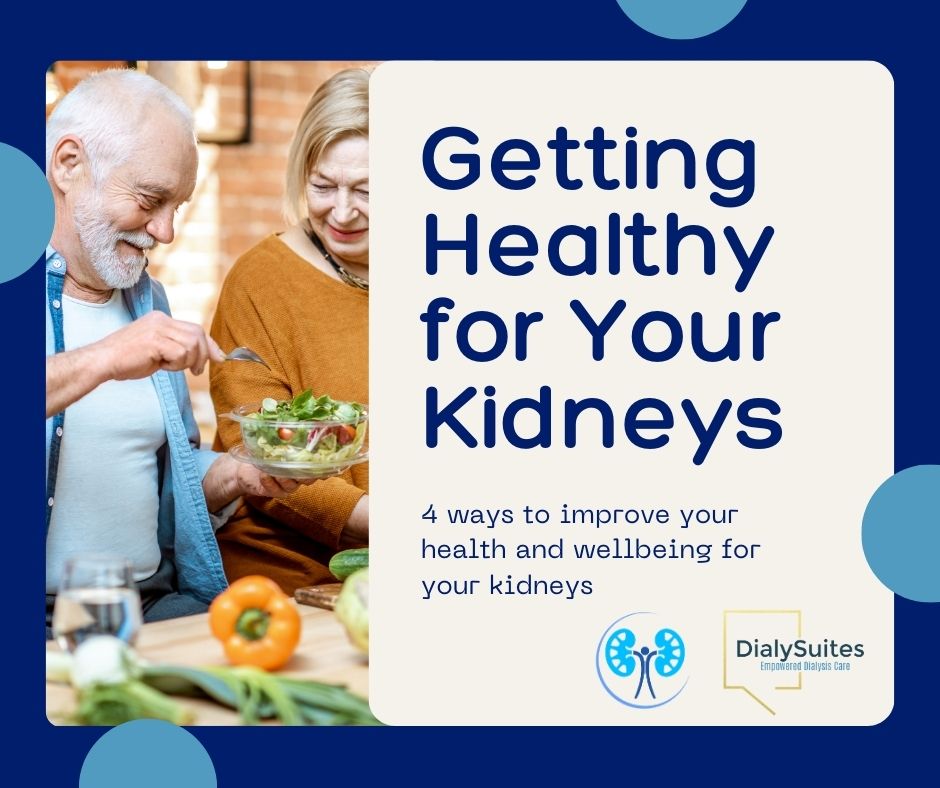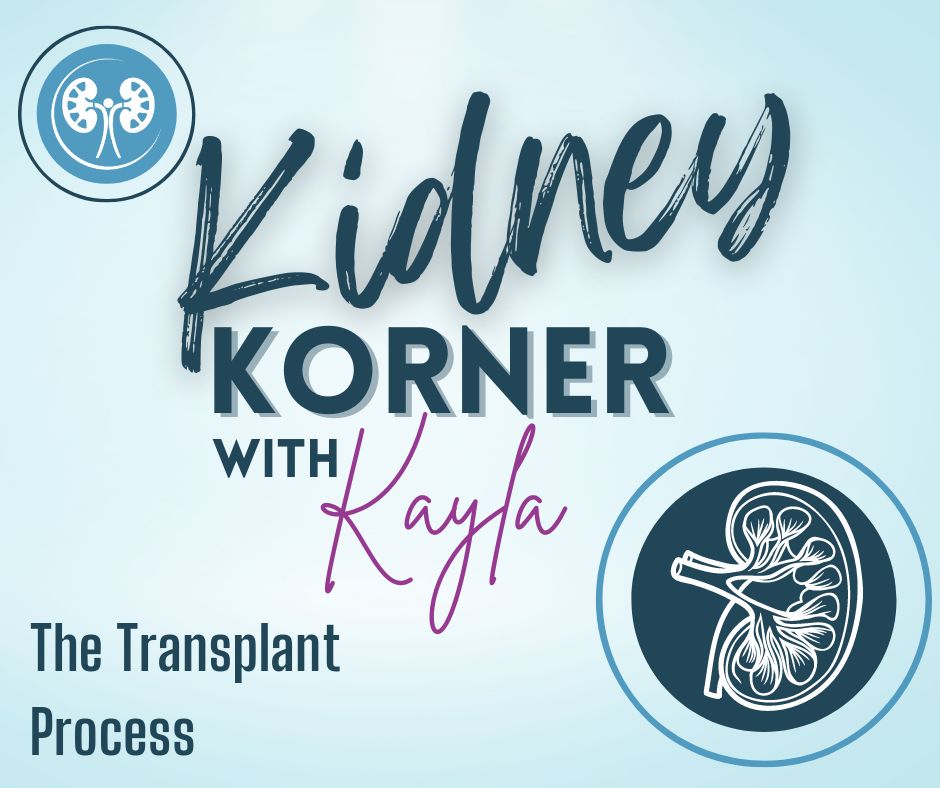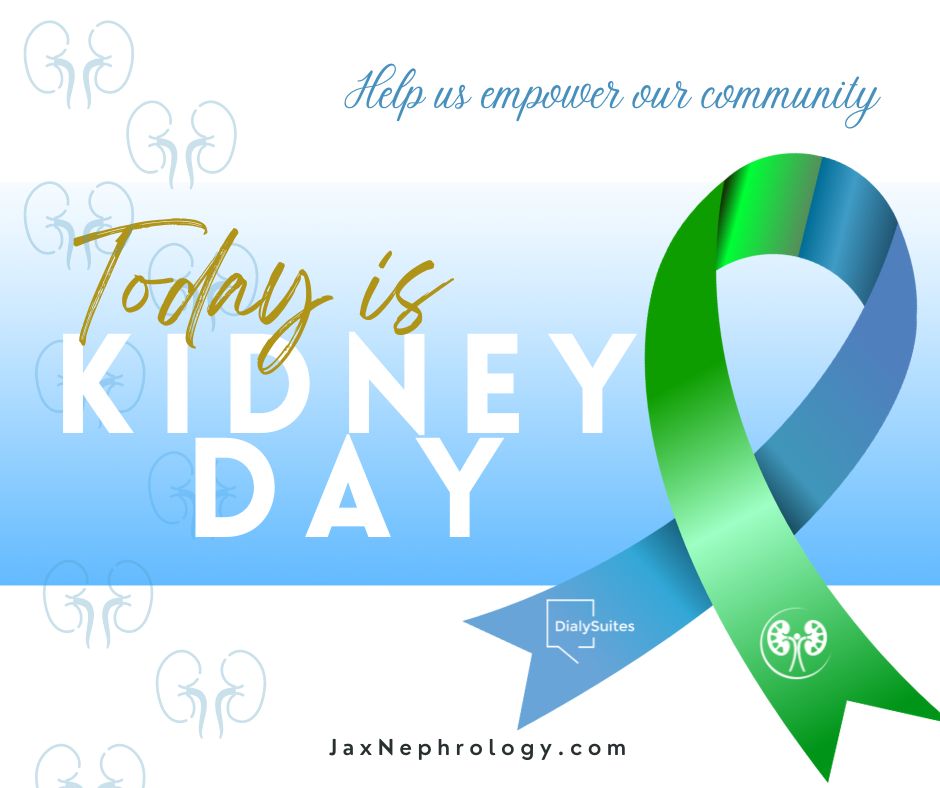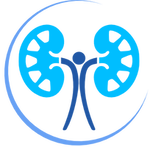|
Taking your blood pressure and keeping track of the readings is vital to your health if you have hypertension or Chronic Kidney Disease (CKD). However, this task can get daunting or become overwhelming for some. For current patients, we have a few tools that may help alleviate the stress around tracking your blood pressure.
Blood Pressure Logs: We provide blood pressure log sheets that assist with keeping your blood pressure information neat and organized. Additionally, there is a reference sheet with instructions and tips for taking the most accurate readings. Be sure to bring this sheet back in at your appointments so we can see your trends! Trackers: Our patient portal has a feature that allows patients to link a blood pressure monitor to their account to track readings so it is more readily available to your care team. This information is not regularly monitored, so be sure to call in when you notice a change or have concerns that need to be addressed by your care team. By using the trackers feature in the patient portal, you can show your other healthcare providers your history of readings by simply logging into your portal on your phone or other smart device. Remote Patient Monitoring (RPM): Our remote patient monitoring program allows you and your healthcare provider to manage your health from the comfort of your own home via bluetooth or 4G enabled health tracking devices. You will be assigned a Care Coordinator that will reach out on a monthly basis and will work with you to maintain consistent communication regarding your vital readings. You will receive additional communication for readings that are out of the designated range to ensure you are doing well. This program comes with an app that stores all of your readings for you with a wide range of other features that can help your overall health. Putting these tools to use is only as helpful and effective as the habits associated with them. Staying on top of taking your blood pressure on a regular basis is the most important part of tracking it. You can find more information on habits and blood pressure on our blog as well. As always, stay safe and healthy! Helpful Links: Habits Blog Post: The Dynamic Duo: Setting Goals and Building Habits Connect a Health Tracker: https://www.jaxnephrology.com/connect-health-tracker.html Blood Pressure Blog Posts: How to take Your Blood Pressure, Understanding Your Blood Pressure Readings In 2021, Dr. Munjal seized the opportunity to incorporate a Remote Patient Monitoring (RPM) program into his practice when it became available to Medicare patients. Dr. Munjal’s passion for this type of program has only grown since its implementation. “For twenty years, I have said that if I ran an insurance company, I would give all patients a blood pressure monitor and scale as they are two of the most effective tools to take care of one’s health. I have always asked patients to log all readings to review at appointments rather than relying on the one reading taken in-office. This may be wrong or an outlier (which happens more often than not) which can greatly affect decision making. If we can see a trend of regular readings in a consistent environment, then we are making better decisions for the patient. These devices are capable of transmitting readings in real time so patients no longer have to maintain a log themselves. Because of this, the care team and I are able to monitor and make decisions as we go along, thus fine-tuning the care plan.”
Our RPM program allows our patients’ blood pressure and weight readings to be monitored remotely by their care team. Patients are able to remain in the comfort of their own home and receive personalized and comprehensive care. By identifying trends and out-of-range readings, we are able to alter a patient’s care plan with more precision in a timely manner to help improve overall health and wellbeing without frequent office visits. Our office provides all of the necessities to get started. This includes:
Remote Patient Monitoring has become an important part of how we care for our patients. We have seen a wide range of benefits from this program for our patients since we began in early 2021. We have been able to identify trends and intervene faster by altering care plans when we have noticed a change in health status. This has reduced potential hospitalizations, prolonged in-office follow-up appointments, and helped to improve care plans for other providers within the patient’s care team. If you are interested in the RPM program, call our office at (904) 260-9898 to get more information. As always, stay safe and healthy! Is White Coat Syndrome real? Yes! Let’s set the scene: You are at your appointment and the Medical Assistant calls you back. They take your vitals and your blood pressure comes back high. The first thought you may have is “Oh no! My readings at home are normally lower than this. Do I have high blood pressure now?” Not necessarily. This is a prime example of what White Coat Syndrome looks like! Let’s investigate this reading and what it may mean.
White Coat Syndrome is used to describe when a patient has elevated blood pressure when in a medical setting, like a doctor’s office or hospital. One high blood pressure reading does not mean that a patient has hypertension. Additionally, there are other factors that can affect your blood pressure at an appointment like stress, anxiety, traffic, paying a bill upon arrival, missing work for the appointment, and more. It is important to note that these temporary spikes in blood pressure could lead to hypertension or other cardiovascular issues down the road. At Jacksonville Nephrology, Dr. Munjal does not make decisions based on a single reading. He looks for trends in blood pressure readings and will make changes based on the patient’s normal range. If we were to make medical decisions and changes based on a single reading, the patient may end up taking too much medication and have a number of side effects, leaving them feeling ill or even hospitalized. By looking at trends over time, Dr. Munjal is able to make more informed decisions. Dr. Munjal encourages his patients to take their blood pressure regularly at home 1-2 hours after medications have been taken when calm, relaxed, and comfortable. This practice gives the most accurate results and lets us see how well your medications are working. Munjal’s Musings: “Most people have White Coat Syndrome and it looks different for everyone. It is most important to be aware of it. Take your readings at home regularly so you know your normal range.” If you see a high reading at your next doctor’s appointment, take a deep breath and remember that it’s okay. Remind yourself of your normal range and discuss it with your doctor. If you have concerns about your blood pressure, call to make an appointment with Dr. Munjal today! As always, stay safe and healthy! Chronic Kidney Disease (CKD) is the gradual decline of kidney function over time. This decline can be accelerated by other chronic conditions such as diabetes, hypertension, and heart conditions. Is it possible that this can be prevented? Once we hit our 40s, our kidney function naturally begins to decline, even without us having done something to cause it. However, there are things we can do to help prevent or slow this decline. This includes:
In short, kidney disease is preventable to some extent. We can delay or reduce the effects by being proactive with our health and making healthy life choices. Remember, change does not need to happen overnight. Small changes made over time can help improve your health. Being better by 1% each day is still an improvement. More information on each of these topics is available on our blog as well. If you have any questions or concerns about your kidney health, please call our office to schedule an appointment with Dr. Munjal to discuss. As always, stay safe and healthy! Related Blog Posts: Getting Healthy for Your Kidneys Safe Exercises for Older Adults or Adults with Limitations Kidney Korner: Fluid Intake- How Much is Too Much? The Importance of Routine Care NSAIDs and Your Kidneys Chronic Kidney Disease (CKD) is the gradual decline of kidney function over time. Once we hit our 40s, our kidney function naturally begins to decline, even without us having done something to cause it. This decline can be accelerated by other chronic conditions such as diabetes, hypertension, and heart conditions. It is important to understand how CKD is assessed, what the different stages are, and what they mean.
How it is Measured There are two important numbers to consider when looking at kidney function: creatinine and eGFR. Creatinine is a measurement of the amount of toxins in the blood or urine. eGFR is a calculation of the kidney function. We will be focusing on eGFR for this post. The Stages of Chronic Kidney Disease Stage 1: Kidney damage with a normal kidney function, with an eGFR of 90 or higher Stage 2: Mild loss of kidney function, with an eGFR between 60 and 89 Stage 3: Stage 3 has two sub-stages, 3A and 3B. 3A is moderate loss of kidney function, with an eGFR of 45-59. 3B is moderate to severe loss of kidney function, with an eGFR of 30-44. Stage 4: Severe loss of kidney function, with an eGFR of 15-29 Stage 5: Kidney failure with need for transplantation or dialysis, with an eGFR of <15 Living with CKD can be managed through a number of different options like diet, regular movement, and proper medication usage, as well as managing other contributing factors, like the ones listed above. Munjal’s Musings “Many people can live long, healthy lives with only one healthy kidney. That is only 50% of the kidney function, or Stage 3 CKD.” Chronic Kidney Disease does not mean you are headed for the dialysis chair. Have an open, honest discussion with your care team about where you stand, your options, and how to continue living your best life. If you have questions or concerns about your kidney function, call our office to make an appointment with Dr. Munjal. As always, stay safe and healthy! Kidney problems can be complex, developing suddenly or over a long period of time. The difference lies in the cause and treatment of the acute and chronic kidney problems.
The Difference AKI: Acute Kidney Injury (AKI) is the sudden, severe onset of kidney failure. This is generally caused by or related to a drug, urinary obstructions, dehydration, illnesses, and/or massive blood loss. It is likely that, after treatment, your kidney function will return to your normal baseline. CKD: Chronic Kidney Disease (CKD) is the gradual decline of kidney function over time, usually without symptoms until it is severe. Once we hit our 40s, our kidney function naturally starts to decline. This natural decline can be accelerated by other conditions such as diabetes, hypertension, and heart conditions. With CKD, we hope to keep the decline steady and stable. Treatment AKI: The underlying cause of the kidney injury needs to be identified, assessed, and treated to help the kidney function return to the normal baseline. Additionally, patients may receive fluids, medications, or undergo a few treatments of dialysis until the kidneys can recover adequately. Dialysis is meant to take over the function of the kidneys. Treatment should be temporary, with minimal follow-up needed. CKD: Contributing conditions should be monitored and managed. CKD requires regular monitoring by a nephrologist. CKD can lead to other complications if not properly followed and managed with diet, regular movement, proper medication usage, and regular lab work as prescribed by your physician. Munjal’s Musings “Chronic Kidney Disease (CKD) and Acute Kidney Injury (AKI) are like car maintenance. CKD is normal wear and tear that happens over time. After 10 years of use, your car doesn’t have the same get-up-and-go like it did on the day you got it. AKI is like a flat tire. You patch the hole and you’re back to normal.” Remember to keep your annual appointments with your Primary Care and regular nephrology follow-ups to monitor and detect trends in health changes.If you are concerned about your kidney function, call to make an appointment to discuss with Dr. Munjal. As always, stay safe and healthy! Each year we set out as The Dream Team to walk a 5k with the National Kidney Foundation (NKF) to raise awareness for kidney diseases. As a team, we raise funds to help the NKF provide assistance to those needing treatments and resources. Read more about the kidneys and our fundraising efforts below!
Kidney Facts: Kidney disease is known as the silent killer. It is so important for us to help raise awareness to empower others to keep up with their health. Here are some kidney disease facts from the National Kidney Foundation to kick-start our mission this year:
Our Fundraising Efforts In the past, we have created a variety of activities for our patients, staff, family, and friends to participate in. These include:
As an added bonus this year, our team came together to empower ourselves and get healthy for our kidneys in March. We aimed to walk an average of 7,500 steps a day and a total of 100 miles each by the end of the month. To help facilitate healthy changes, we also learned to track our nutrition and more about getting healthy for our kidneys. At the end of March, we walked 2,668,595 steps, totaling 1,334 miles! Join us on the walk this year virtually or at Riverside Park on Sunday, May 19th, at 7:30am. To learn more, go to https://www.kidneywalk.org/jacksonville or https://www.jaxnephrology.com/dream-team.html. As always, stay safe and healthy! Did you know that, in some cases, kidney disease is preventable? While genetics can play a part, overall general health is one of the biggest factors in the risk for kidney disease. Let’s explore four ways you can get healthy for your kidneys!
Getting healthy looks different for everyone, so start small and don’t overwhelm yourself. Being 1% better than yesterday is still an improvement. If you have questions or concerns about your kidney health, make an appointment with your Primary Care or Dr. Munjal to discuss. As always, stay safe and healthy! Did you know that dialysis isn’t the only option once you need to consider renal replacement therapy? Transplantation is also an option! Let’s break down what a transplant is, who qualifies, and how the process works. What is a kidney transplant? A kidney transplant is when a healthy kidney from a living or deceased donor is placed in the abdomen alongside the failing kidneys. A kidney transplant does not cure kidney disease, but it may allow you to live longer and improve overall quality of life. Who qualifies for a kidney transplant? Patients with Chronic Kidney Disease (CKD) may initiate the process to be evaluated for a kidney transplant. You can begin the evaluation process for a transplant before you need dialysis, usually after you reach Stage 4 CKD. By starting the process early, you may be able to reduce your overall waiting time on the transplant list. How do I get placed on the transplant list? To initiate the evaluation process, your medical history and insurance will be reviewed from a referral sent by your nephrologist to the facility of your choosing. If, after reviewing the preliminary insurance and medical records, you are found to be a candidate, additional testing will be ordered by the transplant center. These typically include but are not limited to:
After you have completed all the screenings, consultations, and testing assigned by the transplant center, your case will be moved to the center’s transplant committee to be reviewed and receive the final approval. Once approved by the transplant committee, you will become active on the transplant list and you have satisfied any additional requirements as communicated by the center, you will be active on the transplant list. It is important that you maintain your health status and update your care team with any new illnesses or hospitalizations, as these can affect your transplant list status. What happens after I get my transplant? After you undergo your kidney transplant, you will be closely monitored by your transplant care team. This includes frequent lab work and examinations. Your ongoing and post-transplant care will be discussed and coordinated by the transplant center. Talk with your nephrologist to learn more and decide what works best for you. You have options. Happy World Kidney Day! We are so excited to help empower our community with information about the kidneys. We want to take today to bring you back to the basics and teach you about all the wonderful things the kidneys do within the body. We’ll share the basics, some fun facts, frequently asked questions, and how our team gets involved with empowering others.
The Basics: Located in the back, just below the ribcage, the kidneys are fist-sized, bean-shaped organs. They have 6 major functions:
Fun Facts:
Q: What do kidneys have to do with my blood pressure? A: Your kidneys play a vital role in your blood pressure management. Your kidneys control your electrolyte balance which, in turn, affects your fluid balance. An increase in fluid volume of the blood increases your blood pressure. Additionally, in some cases, the adrenal glands on top of the kidneys influence certain hormone levels that are connected to blood pressure management within the body. Q: But I don’t have symptoms and I feel fine. How do I have Chronic Kidney Disease? A: Your kidneys and body are miraculous machines. Oftentimes, symptoms of Chronic Kidney Disease do not manifest until you are in the later stages. This is why regular lab tests are critical to keep up with as they can detect changes in your kidney function before the symptoms begin. Q: How much water should I be drinking? A: Let’s start by clarifying: we talk about fluid consumption, not water consumption alone. Water is a fluid and should be calculated into your daily intake, but other fluids need to be included as well. Coffee, tea, milk from cereal, and broth from soup are all examples of fluids that should be calculated into your daily fluid intake. There is no set amount of fluid that a person should be drinking per day, as all of our conditions are different. As a general rule of thumb, if you sweat more, you need to drink more. Dialysis and Congestive Heart Failure (CHF) patients are on a fluid restricted diet and should abide by physicians’ orders. Q: Does cranberry juice work for the kidneys? A: No! Cranberry juice can help to alleviate symptoms of a Urinary Tract Infection (UTI), but does not cure it or make it go away. Untreated UTIs can cause kidney or prostate infections. These are more serious as it can travel to the blood and cause sepsis. UTIs are generally treated by Primary Care or Urologists for chronic infections. How We Get Involved: Our team is working hard at getting healthy for our kidneys. We have embarked on a month-long step challenge that not only includes walking, but nutrition and health tracking. With some knowledge, hard work, and a little friendly competition, we are empowering ourselves to help continue empowering and encouraging our patients. Additionally, we walk with the National Kidney Foundation for their annual Kidney Walk to raise awareness for kidney diseases. Join us or walk virtually this year at Riverside park on Sunday, May 19th, at 7:30am. Learn more at https://www.kidneywalk.org/jacksonville. |
About The BeanThe Bean is a blog on a mission to share valuable information in the world of Nephrology. We believe in empowering through education and The Bean is a great place to find resources and information on topics related to high blood pressure, kidney disease, dialysis, and topics that enhance the kidney minded lifestyle. Enjoy and be sure to subscribe! Archives
July 2024
Categories |
Contact Us |
Careers |
Connect With Us |
|
13241 Bartram Park Blvd., Suite 1001
Jacksonville, FL 32258 Open Map Tel: (904) 260-9898 Fax: (904) 260-9891 |
Interested in joining our team? Jacksonville Nephrology is dedicated to compassionate patient care through teaching and giving our team the tools needed to go above and beyond. Learn more about current openings. Learn More
|
